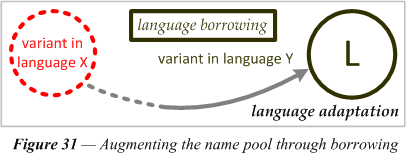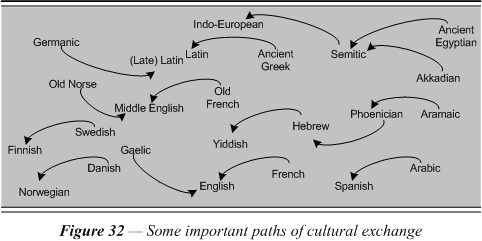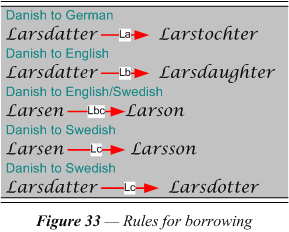
4.1 Borrowing. When population of different cultures live in close proximity and interact with each other, they usually come to share some of their habits and customs. An aspects of the culture often shared is the name pool — the set of names from which a name is selected for a new arrivals. The cultural name pool is also affected by people who migrate from one locality to another or who survive from one generation to another. They carry their culture as an inheritance and legacy. They carry their names and those of their family and ancestors with them into the new culture. Making the distinction between spacial and temporal item exchange, we call the first process borrowing and the second evolution.

The figure below may be compared to the figure in the paragraph on evolution where languages are grouped by linguistic derivation. In both figures the vertical dimension represents temporal change. Here the arrows relate some of the languages which are not connected by evolution, but which existed at the same time and which were likely to share a good number of personal names by their speakers borrowing from interacting populations.

Today there are many important influences on the English language pool of personal names from many cultures throughout the world. In the 18th century there was considerable borrowing from French, in the 19th century from the various Native American languages and today from the many African tongues.
In addition to the complications that come through multiple transliteration systems, It is hardly possible to borrow a name from another culture without some degree of respelling, dialect adjustment, or some other adaptation. Figure 33 lists the variant forms that were discovered in among the Danish patronymic surnames whose explanation by borrowing is most immediate. This explanation makes them alternate standards connected to the Danish standard, which is the root of the dendritic diagram of variant forms.

